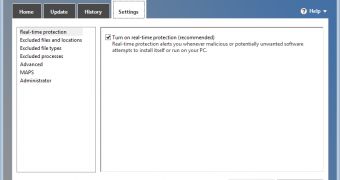While Windows 8 comes with the refreshed version of Windows Defender, the one that provides full anti-malware protection, some new PC buyers won’t get to use it, says Aryeh Goretsky, researcher at antivirus software firm ESET.
The reason is as simple as it could be: computer manufacturers usually install a trial of a third-party security software on every sold PC and whenever a consumer purchases the full product, they also get a commission for the sale.
Since Windows 8 is expected to revive the collapsing PC market, Windows Defender may very well be disabled on a significant number of new computers.
“Many new computers purchased with Windows 8, however, will not have Windows Defender installed as their default anti-malware program. Many computer manufacturers ship their computers with a trial version of a commercial anti-malware program installed on them. This is because those manufacturers receive payments from the anti-malware vendors to pre-load the software onto the computers they sell,” Goretsky explained.
Windows 8 comes with a brand new version of Windows Defender that offers users full anti-malware protection.
While it still lacks advanced features currently available in many other third-party apps, the new Windows Defender is much more powerful than the previous versions which only provided spyware detection and removal features.
“Windows Defender does not contain many of the advanced features and functions of paid-for solutions, such as a high level of granularity for threat detection, task scheduling, centralized management and reporting and so forth. As with other free anti-malware programs, support options for Windows Defender are limited,” the security researcher explained.

 14 DAY TRIAL //
14 DAY TRIAL //